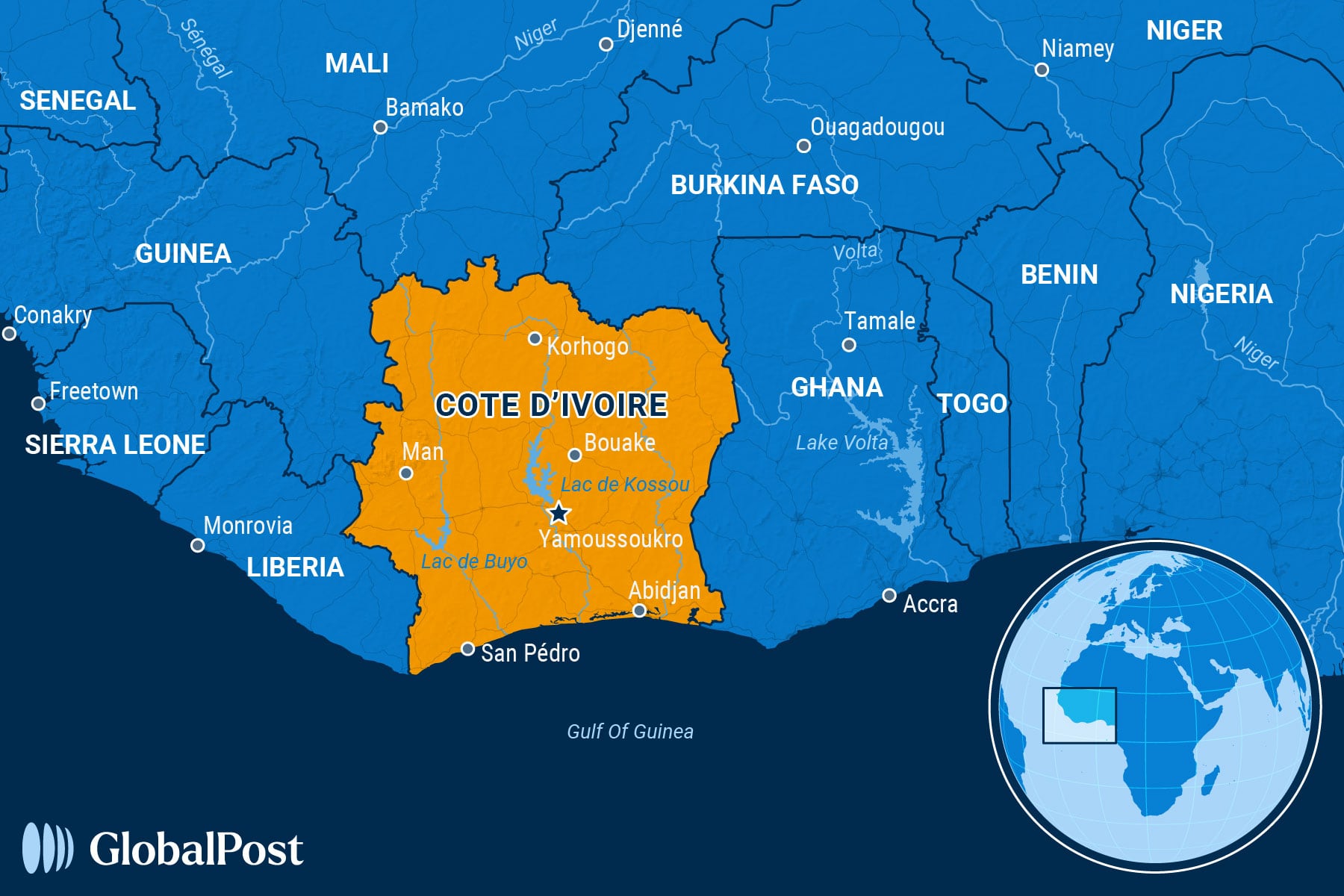NEED TO KNOW
Miracle, Derailed? Ivory Coast’s Success Threatened By Election Gambit
IVORY COAST

The small, West African country of Ivory Coast experienced an economic “miracle” from the 1950s until the 1980s. Now, it seems as if it is on the verge of a second one.
Devastated by two civil wars, from 2002 to 2007 and from 2010 to 11, which combined killed thousands, it has since become West Africa’s economic success story with growth rates hovering around 7 percent in the past decade and one of the highest GDP per capita rates in the region.
With much of sub-Saharan Africa grappling with coups, wars, jihadist insurgencies, and economic stagnation, Ivory Coast, a country of 32 million people known for cocoa exports – it is the world’s largest producer – is a rare exception on the continent, say analysts.
Still, while the first “Ivorian miracle” was driven by cocoa, part of the country’s recent success is attributed to diversification, an ability to attract investment over the past decade, and the smart economic policy of the government of Alassane Ouattara, a former deputy director of the International Monetary Fund, who has been president since 2010, and the relative political stability that followed over the next decade.
That, however, is now being threatened in the runup to elections later this year.
Ouattara, 83, won his third term in 2020, despite a constitutional limit of two terms, in an election that was boycotted by the opposition and led to unrest. Now he has signaled that he may run again, Reuters reported.
Meanwhile, in April, a court banned Tidjane Thiam, the presidential candidate for the leading opposition party, Democratic Party of Ivory Coast–African Democratic Rally (PDCI), from running in the election, saying he wasn’t an Ivorian citizen. Thiam became a French citizen in 1987 but gave it up in March. The decision is not open to appeal.
“While we had the right to hope for inclusive, transparent, and peaceful elections, it is clear that the unjustified removal of the PDCI candidate is part of the logic of eliminating the leaders of the main opposition parties to ensure tailor-made elections and a certain victory,” he said, before stepping down as head of his party recently.
Protests have already broken out, led by the opposition.
Meanwhile, former President Laurent Gbagbo announced he would run in this fall’s elections, before the court also banned his candidacy along with those of former minister Charles Blé Goudé and former Prime Minister Guillaume Soro.
The exclusion of Blé Goudé and Gbagbo has stoked uproar among their political supporters, Africanews wrote.
In other countries, this situation might lead to a cycle of protests and crackdowns by the government before melting away, say analysts. But Ivory Coast has a history of politics turning bloody. For example, the first civil war broke out after the presidential election in 2000 when transitional military government leader Robert Guéï refused to step down after losing to Gbagbo. Then, in 2010, the country’s second civil war broke out after Laurent Gbagbo refused to concede the election to Ouattara.
Now that cycle could continue and threaten the economic ‘miracle’ on the horizon.
The Council on Foreign Relations said Ouattara is playing an old game, one where he pretends to hesitate to run again, but where his party pushes for his candidacy, leading to a situation in which the “father of the nation” reluctantly accepts to carry on for the good of the country. The think tank called it “a dangerous gambit.”
“To say that President Ouattara’s shillyshallying is the last thing that Côte d’Ivoire needs is an understatement,” it wrote. “In the first place, the fact that previous electoral contests have been dogged by violence means that the country has little margin for error and can nary afford a potentially combustible situation … It is regrettable that Ouattara, (who was) the clear winner (of the 2010 elections but one who) Gbagbo was reluctant to hand over (power) to, has learned very little from the tragic episode.”
To read the full edition and support independent journalism, join our community of informed readers and subscribe today!